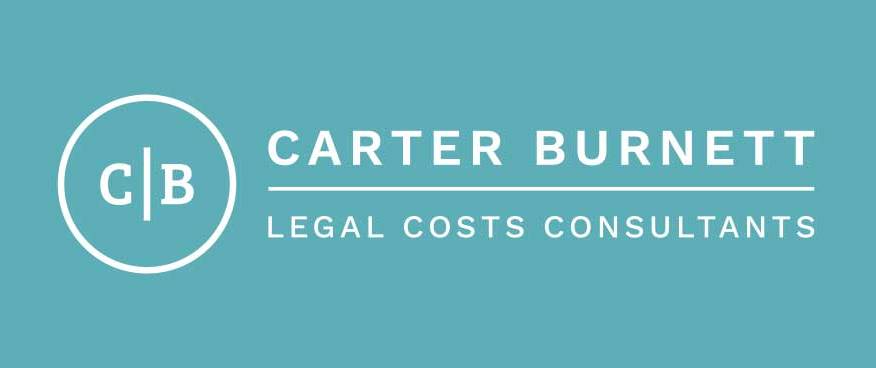How to use mediation to settle business disputes
Posted on 10th March 2020 at 12:18
By Jon-Paul Burnett, a specialist Costs Draftsman with over 20 years' experience
Sometimes pursuing legal action is the only way to settle what may seem like a never-ending dispute.
Thankfully, this does NOT always mean you have to go to court to achieve an amicable resolution.
Mediation now offers all parties a cost-effective alternative to litigation, using an independent mediator to help facilitate a settlement on a without prejudice basis.
What is mediation?
Mediation is a formal but flexible process which allows two or more parties or organisations who are in monetary dispute to work towards a negotiated decision they both agree with.
Conducted confidentially by an accredited mediator, their role is to act as a neutral and impartial person to actively assist all parties so that the terms of resolution can be agreed without going to court or continuing with litigation.
According to the latest Centre for Effective Dispute Resolution (CEDR) mediation audit, 74% of all alternative dispute resolution cases achieve settlement on the day.
In total, the success rate for mediation is 89% and only 4% of cases now settle at trial.
Why might you need mediation?
Lengthy disputes are not just disruptive – they’re also time consuming and costly!
Whether it’s a relatively small claim or a dispute valued in the millions, mediation can help to break the negotiation deadlock.
Even when parties seem to have totally opposing views, an acceptable solution can still be reached with the help of an experienced mediator.
At Carter Burnett, we understand why both parties are often anxious about the possibility of going to court and the potential costs involved.
If you're locked into a commercial conflict or an ongoing dispute is dominating your life, we can use our expertise to resolve the matter in a confidential, fast and cost-effective manner.
What does the process involve?
As an experienced civil and commercial mediator, my role is to guide both parties to an agreed resolution by removing emotion from the entire process.
On the day of the mediation itself, each party is invited to attend the same venue where they are given their own room to stage discussions (and outline their stance) with the independent mediator.
In some instances, one or both parties may be accompanied by their legal representatives but this is not always necessary.
The overall aim of mediation is to reach an enforceable, legally-binding agreement – called a 'memorandum of understanding' – which is signed by both parties.
To do this, the mediator moves from room to room and tries to facilitate each participant to find common ground.
In some cases, the mediation process involves a mixture of individual meetings and joint meetings with all parties involved, depending on how the participants want to proceed. Sometimes joint sessions can be very beneficial.
The mediator will always take into account the express wishes of the individual participants as to how the sessions will be held.
By stress-testing the participants’ respective positions and explaining the risks associated with going to court, it’s often possible to successfully settle a dispute outside of litigation or before a costly trial.
In my experience, the majority of mediations lead to a resolution being agreed on the day itself.
What are the benefits?
Mediation has a proven track record for being a highly-effective alternative dispute resolution process.
The focus for the impartial mediator is to assist the participants to reach a settlement which is of their own making, if they wish to.
If each party is willing to engage, they could enjoy the following benefits:
• Save money – gets rid of the need to pay expensive legal fees.
• Save time – pursuing a fight through the courts can take months or years.
• Eliminate stress and regain control of your life.
• Remove the uncertainty of going to court for a non-negotiable verdict.
• Quick – mediation can be set up in a week and is usually resolved on the day.
• High rate of success – only 4% of mediation cases end up in court.
What types of dispute can mediation help to settle?
People often turn to mediation solicitors when they required a facilitation-based approach to help break the deadlock.
At Carter Burnett, you can receive mediation advice for a wide range of areas – including:
• Acquisition Disputes
• Business Matters
• Civil & Commercial Court Claims
• Commercial Disputes
• Commercial Lease Disputes
• Company & Partnership Disputes
• Contentious Probate
• Construction & Engineering Disputes
• Contract Disputes
• Directors' Disputes
• Commercial Funding Disputes
• Goods and Services Disputes
• Inheritance Act Disputes
• Intellectual Property Disputes
• Internet & IT Disputes
• Neighbour disputes
• Professional Negligence
• Property & Boundary Disputes
• Shareholder Disputes
• Trespass Disputes
Mediation is only applicable to disputes which fall under the jurisdiction of the Courts of England and Wales, Northern Ireland and Scotland.
How much does mediation cost?
Mediation can often prove complex, so the amount you pay will vary on a case by case basis - depending on several factors.
At Carter Burnett, we are part of The Humber Civil Mediation Scheme, which is available for all parties involved in disputes from £10,000 up to £250,000.
The fee structure, which is payable by each party involved in the dispute, is outlined below:
FEE STRUCTURE
Case Level Duration Fees per party
1 - £10k to £25k 1.5 hours £200.00 plus VAT
2 - £20k to £50k 2 hours £350.00 plus VAT
3 - £50k to £100k 3 hours £500.00 plus VAT
4 - £100k to £250k 4 hours £750.00 plus VAT
The purpose of mediation is to encourage people to reach a settlement of their own accord. Unfortunately, I don’t believe it is a strategy which is used often enough.
If you would like to appoint me to act as a mediator before issuing court proceedings, you’re perfectly free to do so.
We can arrange to host mediations for only a minimal additional cost, which depends on the number of rooms required.
In our experience, and to ensure the process is cost effective, we only recommend pursuing mediation for disputes valued at £5,000 or more.
Cases over £250,000 would be costed on an individual basis, depending on the nature of the dispute and number of papers to consider.
Why should you choose Carter Burnett?
At Carter Burnett, we are committed to helping you achieve a swift, sensitive and cost-effective solution through mediation.
We’re proud to be members of the Civil Mediation Council, a charity which promotes the resolution of conflicts by encouraging the use of mediation and other forms of alternative dispute resolution.
When two parties are locked in what seems like an inflexible dispute, we act sensitively and put strategies in place which are proven to pave the way for negotiation.
Whilst a settlement is not guaranteed, we believe that being free to talk off the record often allows a more honest discussion to take place because there’s no risk of any repercussions.
Rather than leave the decision in the hands of a judge, we help you take control of your destiny by coming up with creative solutions that are suitable for all parties (and their lawyers!).
In many cases, it’s even possible to negotiate a settlement which allows a commercial relationship to be repaired so it can continue in the future.
If you or someone you know is currently being affected by a dispute, get in touch – we could help find a workable (and practical) solution that brings closure for everyone involved
To find out more, please email info@carterburnett.co.uk or call 01482 534 567 for an informal discussion.
Share this post:


